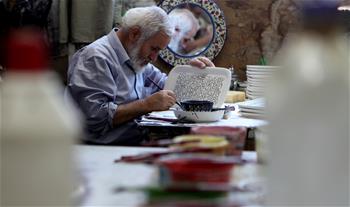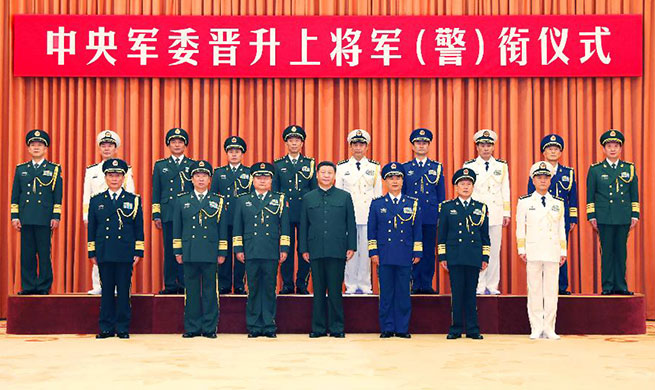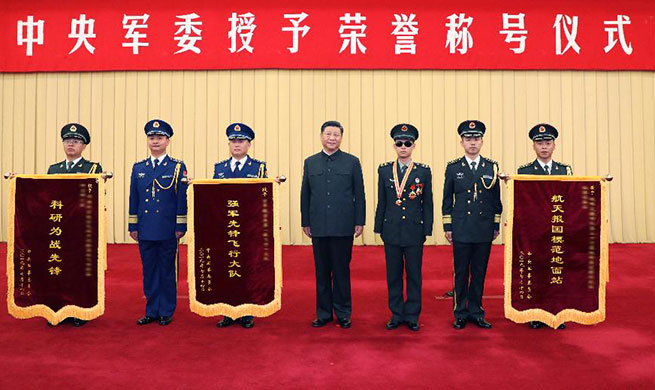by Hassan Rouhvand
TEHRAN, Aug. 1 (Xinhua) -- Iranian Foreign Minister Mohammad Javad Zarif, who was the driving force behind diplomacy with the U.S. former administration and spearheaded the country for a landmark deal with powers to terminate the controversy over Tehran's nuclear program, was blacklisted by the incumbent U.S. government on Wednesday.
This came after the U.S. Treasury Department hinted the possibility of sanctioning Zarif on June 24 when it slapped sanctions on the Iranian Supreme Leader Ayatollah Ali Khamenei.
The fresh U.S. move on Zarif would diminish the prospect of a diplomatic solution to the differences between the United States and Iran, Mostafa Tajzadeh, the Iranian political expert, explained on Thursday.
"Sanctioning Zarif has earnestly challenged the likelihood of dialogue between the two governments," he noted.
On Wednesday, a senior official of U.S. President Donald Trump's administration told reporters that Zarif is "the Iranian regime's primary spokesperson around the world. (By designating Zarif), the United States is sending a clear message to the Iranian regime that its recent behavior is completely unacceptable."
Tajzadeh argued that sanctioning Zarif "proves that his latest trips to New York, as well as talks with the U.S. media and officials have disputed the political position of the warmongers, within the U.S. administration, in the public opinion."
On Thursday, the Iranian President Hassan Rouhani said that "they (Americans) were claiming that they want to talk with no preconditions," however, they sanctioned the Iranian foreign minister.
"This means that they have lost the power of rational mind," he stated.
Iran's Foreign Ministry Spokesman Abbas Mousavi also said that "the Americans are seriously scared by the logic of Zarif and his art of negotiations."
"The U.S. reason for designating me is that I am Iran's 'primary spokesperson around the world.' Is the truth really that painful?" Zarif reacted quickly through Twittter after the U.S. announcement.
Kourosh Ahmadi, another Iranian political expert in the American affairs, also commented that "sanctions on Zarif could mean suspension of the efforts for a solution to the crisis" in the relations between Tehran and Washington.
"The Trump administration was always scared about the influence of Zarif's measures and his language on the public opinion both inside and outside of the United States," said Ahmadi, also a former Iranian diplomat.
The relations between United States and Iran have experienced a hard time on the rocky path for four decades since the victory of the Islamic Revolution in 1979, but the situation has turned even worse after Trump pulled Washington out of the international 2015 Iranian nuclear deal in May 2018.
Tensions between the two sides even reached a boiling point after Washington re-imposed economic and energy sanctions, lifted under the accord, on Tehran and started to flex its military muscles in the Middle East by deploying warships, bombers and troops, to the region.
Both sides have even gone further by declaring drone clashes over the Iranian southern waters.
Under the current circumstances, the need for an active diplomacy to settle the issues politically is an urgent international task.
Wendy Sherman, the U.S. negotiator on the Iran nuclear deal, said "I can't think of anything that makes less sense than sanctioning a key person who might actually be helpful if there is ever a dialogue with the U.S."
Besides, Tajzadeh expressed concerns that the new U.S. move would "close the path of dialogue and interaction."

















